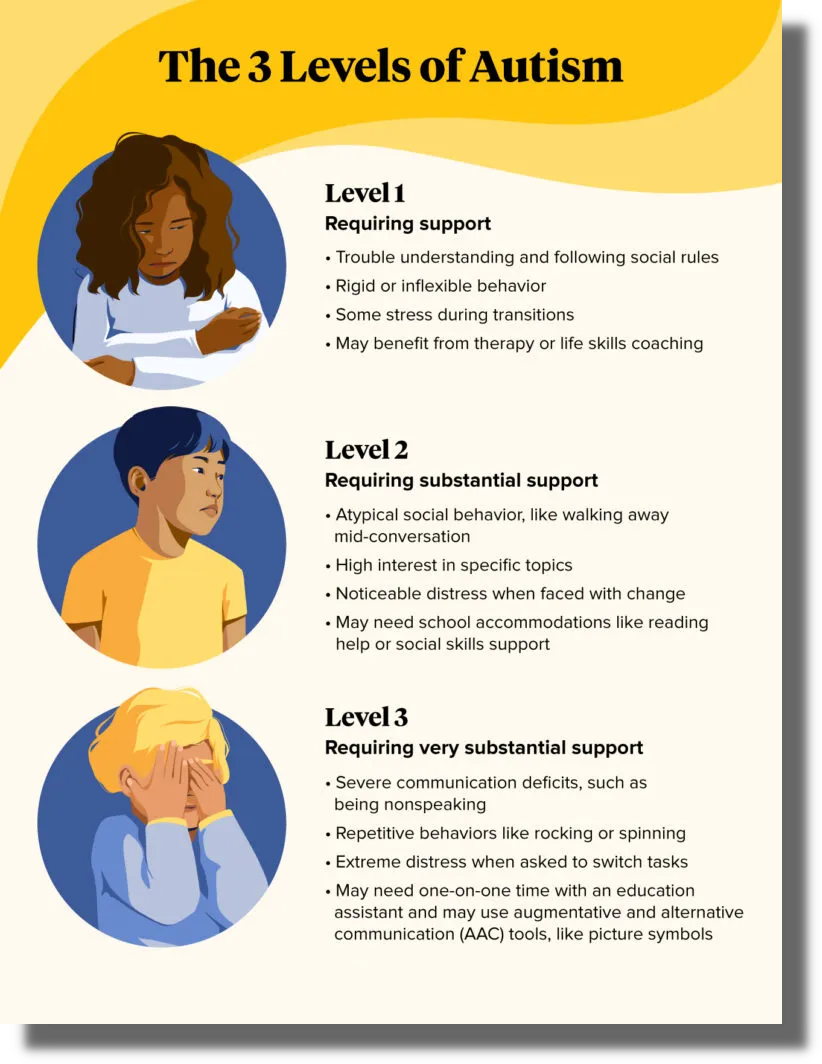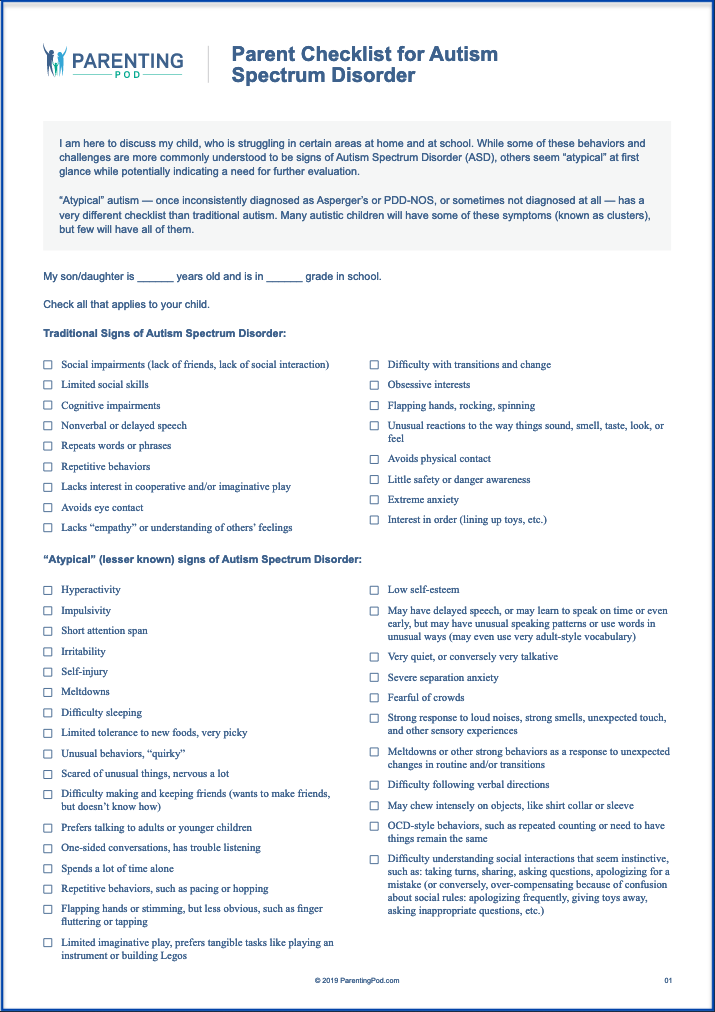How an Aba Therapist Near Me, families see measurable progress in social and communication growth
How an Aba Therapist Near Me, families see measurable progress in social and communication growth
Blog Article
Comprehending the Influence of Behavioral Autism on Day-to-day Live and Social Interactions
You might not recognize how deeply behavioral autism impacts day-to-day live and social communications. Individuals on the spectrum often browse a globe loaded with interaction obstacles and sensory overload. These challenges can bring about aggravation and isolation, influencing their relationships and overall wellness. Recognizing these subtleties is essential for fostering supportive atmospheres. What techniques can we carry out to create even more purposeful links and inclusive spaces? The answers may surprise you.
Defining Behavior Autism and Its Features
Behavioral autism, frequently referred to as autism range disorder (ASD), encompasses an array of problems characterized by obstacles in social interaction, interaction, and repeated behaviors. You could observe that individuals with ASD often have a hard time to interpret social signs, which can lead to misconceptions in conversations. They may discover it hard to develop eye get in touch with or take part in small talk, making social situations feel overwhelming.
Interaction problems can materialize in various ways, from delayed speech advancement to a choice for making use of less words. Repetitive habits, such as hand-flapping or shaking, can work as coping devices to take care of anxiety or sensory overload. These attributes can exceptionally affect life, making it necessary for you to comprehend and support those with ASD. By identifying these qualities, you can foster an atmosphere that promotes acceptance and encourages reliable interaction, assisting individuals with autism prosper in their daily communications.
The Spectrum of Autism: Recognizing Variability in Actions
Autism range problem (ASD) isn't a one-size-fits-all medical diagnosis; it differs commonly amongst people. You may see that some individuals with ASD display moderate signs, while others might encounter extra significant obstacles. This irregularity can show up in actions, rate of interests, and sensory level of sensitivities. You may come across people that are very spoken and involve quickly in conversations, while others could choose singular tasks or connect non-verbally.
Moreover, the way individuals with ASD react to sensory input can differ considerably; some could be overwhelmed by loud sounds or bright lights, whereas others thrive in boosting environments. The range also consists of differences in social communications; some individuals might battle to analyze social signs, while others browse social settings with family member convenience. Recognizing this irregularity is essential, as it assists you value everyone's one-of-a-kind experience and tailor assistance to their particular demands, fostering an extra comprehensive atmosphere for everybody.
Interaction Challenges Faced by People With Autism
When you communicate with people on the autism range, you might observe their special interaction challenges. They commonly deal with troubles with both nonverbal and verbal signs, which can affect their social interactions. Comprehending these barriers is crucial for fostering much better connections and assistance.

Verbal Communication Difficulties
Several individuals on the autism range experience spoken interaction difficulties that can considerably influence their day-to-day interactions. Your tone, pace, or quantity might not align with social assumptions, triggering others to misunderstand your purposes. Acknowledging these challenges can assist you and your assistance network develop methods to boost interaction and promote far better links with others in your daily life.
Nonverbal Interaction Obstacles
Verbal interaction isn't the only difficulty people on the autism range face; nonverbal communication barriers can be just as significant. You may locate it tough to interpret body language, facial expressions, and eye contact, which are vital for reliable interaction. These difficulties can result in misunderstandings or false impressions of social signs, making interactions feel frustrating or complex. You may battle to express your very own feelings with nonverbal methods, leaving others unclear of your feelings or intents. This separate can create sensations of isolation and irritation. Recognizing these barriers is essential for fostering understanding and empathy in your communications. By dealing with nonverbal communication, you can discover methods to boost your social experiences and improve your overall high quality of life.
Social Interaction Impacts
Social communications can frequently really feel overwhelming because of the unique communication challenges dealt with by people with autism. You might deal with analyzing social hints, making it difficult to comprehend mockery or body movement. This can lead to misconceptions or awkward moments in discussions. Additionally, launching and keeping discussions might really feel challenging, creating anxiety in social circumstances. You might choose organized settings, making spontaneous communications uneasy. It's additionally typical to experience problem in taking part in small talk, which can prevent developing brand-new friendships. Acknowledging these difficulties can help you discover approaches to boost communication, such as practicing social abilities in secure setups or making use of visual aids - Aba Therapist. Comprehending your requirements allows you to navigate social interactions with greater self-confidence and convenience.
Social Interaction and Partnership Structure in Autism
While building partnerships can be challenging for people with autism, understanding their distinct point of views and interaction styles can foster significant connections. You find this could observe that lots of individuals on the range choose straight interaction and might battle with social cues or small talk. By being simple in your communications, you can aid create an environment where they feel comfortable.
Put in the time to pay attention and observe just how they reveal themselves. This insight can direct you in steering conversations extra efficiently. Engaging in shared rate of interests can also work as a bridge to much deeper connections. Whether it's a leisure activity, a preferred show, or a common interest, these usual threads can open up doors to relationship.
Every Day Life Regimen: Navigating Approaches and obstacles
Maneuvering daily life routines can be specifically challenging for people with autism, especially when unforeseen changes happen. To navigate these difficulties, consider implementing visual timetables or checklists.
Developing a regimen that consists of sensory breaks can additionally be valuable. This aids develop an understanding atmosphere.
Last but not least, practice mindfulness techniques to take care of tension and anxiousness. Basic breathing workouts or basing techniques can make a considerable distinction. By integrating these techniques, you can boost your everyday regimen and lessen interruptions, making life feel a lot more manageable.
Strengths and Capabilities of Individuals on the Autism Spectrum
Comprehending day-to-day live routines is just one aspect of the autism experience. Several people on the autism range possess amazing strengths see and capabilities that set them apart. You may discover that your focus to detail is outstanding, enabling you to master tasks that call for accuracy and focus. Your capability to assume outside the box can cause innovative options in different circumstances.
In addition, your memory abilities often beam, particularly in areas of rate of interest. Autism Behavioral Therapy. This propensity for preserving information can make you a useful source in areas like innovation, art, or science. You might additionally exhibit solid aesthetic reasoning, allowing you to picture complex concepts and fix problems creatively
Additionally, your one-of-a-kind point of view on the globe can promote empathy and understanding in others, improving social communications. Welcoming these toughness not just increases your confidence but likewise assists others value the varied abilities you offer the table.
Creating Inclusive Settings for Individuals With Autism
Producing comprehensive settings for people with autism starts with designing sensory-friendly spaces that cater to their distinct demands. You can also foster chances for social interaction, aiding to develop relationships and connections. By making these modifications, you'll add to an extra welcoming environment for everybody.
Creating Sensory-Friendly Spaces
While designing sensory-friendly rooms, it's essential to mirror on the distinct needs of individuals with autism. Integrate peaceful zones where people can recharge and retreat when overwhelmed. Include aesthetic schedules or clear signage to aid individuals navigate the room with confidence.
Promoting Social Communication Opportunities
Creating sensory-friendly spaces not just addresses private convenience however additionally establishes the phase for purposeful social interactions among people with autism. Encourage peer mentoring, pairing individuals with autism with encouraging peers that can guide them through social situations. By executing these techniques, you can boost social opportunities, assisting people with autism build relationships and strengthen their social skills in a secure, inviting environment.

Frequently Asked Concerns
Exactly How Can Buddies Support Somebody With Behavioral Autism?
You can sustain a pal with behavior autism by being individual, paying attention actively, and appreciating their limits. Involve in activities they appreciate, interact honestly, and produce a comfy setting where they feel valued and understood.
What Resources Are Offered for Parents of Children With Autism?
You can explore different resources for parents of youngsters with autism, consisting of support system, educational websites, and neighborhood social work. Getting in touch with other moms and dads can additionally offer useful insights and shared experiences to aid browse challenges.
Can Behavioral Autism Change With Time?

Yes, behavior autism can alter in time. You could notice shifts in communication, social skills, and behavior as your child expands. Early intervention and assistance typically play important duties in these developing modifications.
Just How Do Sensory Sensitivities Influence Every Day Life?
Sensory sensitivities can make daily experiences overwhelming. You may have problem with intense lights or loud noises, look at this now bring about tension or evasion. Finding settings that fit your needs can substantially boost your comfort and total everyday life.
What Prevail Misconceptions Regarding Behavioral Autism?
You may think behavioral autism only impacts interaction skills, however it's even more complex. Several assume people lack empathy or knowledge, which isn't real. Understanding these false impressions aids foster approval and assistance for those on the range.
Behavior autism, typically referred to as autism range disorder (ASD), includes an array of conditions characterized by challenges in social interaction, interaction, and repeated habits.Social communications can usually really feel overwhelming due to the special interaction obstacles faced by individuals with autism.Designing sensory-friendly rooms not only addresses private convenience but likewise establishes the stage for significant social interactions among people with autism. Motivate peer mentoring, matching people with autism with encouraging peers that can lead them with social circumstances. By applying these techniques, you can improve social chances, aiding individuals with autism construct friendships and enhance their social skills in a secure, inviting setting.
Report this page